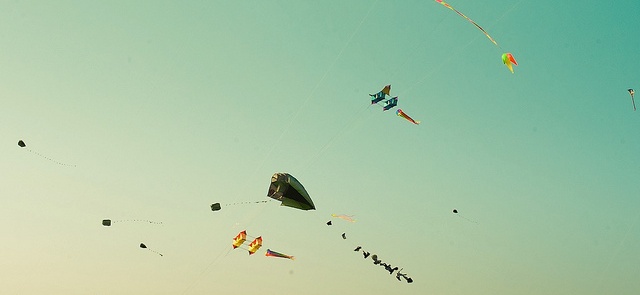"Clean" Monday: Let's fly a kite and make wishes!
Ash Monday or Clean Monday - as it is directly translated from Greek - is the first day of the Greek Orthodox Lent and it also marks the end of the carnival season. The day takes its name after the religious meaning of spiritual and body cleansing of the Christians and it is one of the most important Bank holidays in the Orthodox calendar.
Clean Monday is an opportunity for the family to gather and have a pleasant day, usually outdoors in the nature, where they can also fly a kite and - if the weather allows - to have a long lunch consisting of the traditional delicacies of the day. Among those, the “lagana” bread which is sold at bakeries across the country only for the day, as well as, the fish roe salad - ‘taramosalata’ in Greek -, a lot of fresh vegetables and semolina ‘halvas’ for dessert.
Flying the kite on Clean Monday has a particular semiology which regards being rid of whatever troubled us during winter. After all, Spring is here in all its glory. The elders prompt the youngsters who will be flying a kite, to write down their wishes on little pieces of paper and tie them with ribbons on the kite’s tail.
The custom of flying the kite, roots back to 200 BC where the first kite was spotted in China and in Malaysia. This is where the first kites were made out of bamboo and silk and had the shape of a dragon, as they still do today. Kites were then spotted in Korea and Japan where construction continued with more shapes. Kites were actually brought into Europe by European explorers who traveled in Asia at around 1400 AD. During both World Wars, the kites were even used as a means of observation.
In Greece, kites are made by children themselves, with or without the help of their parents and by using simple materials such as paper, cane of wooden sticks for the frame and string, plus newspaper and leftover ribbons from the carnival for the tail.
This is how the kite is called in various countries:
Greece: ‘chartaetos’ which means eagle made out of paper
UK: ‘kite’ which is the name of a beautiful bird
Japan: ‘tako’ which means octopus due to the numerous strings that hung off
Mexico: ‘papalote’ which means butterfly
Germany: ‘drachen’ which stands for dragon



